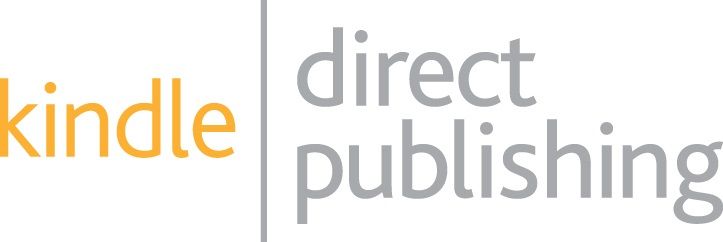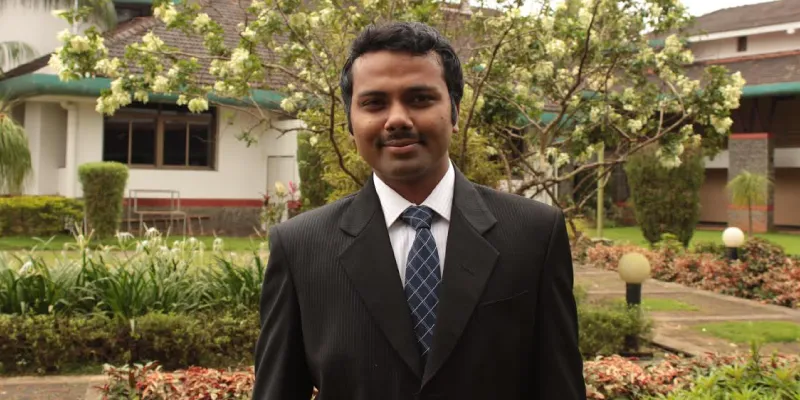
Kindle Direct Publishing
View Brand PublisherKindle Direct Publishing helps budding authors like me be heard globally, says winner of Wordsworthy contest
They say love makes a poet of us all. Just ask Jithin Emmanuel Jacob, the winner of Wordsworthy, a short story contest organised by Kindle Direct Publishing (KDP) and The Hindu Lit for Life festival. He says he began writing in engineering college, when he was trying to woo ‘the prettiest girl on campus’, who also happened to be an ardent bookworm.
“We drowned ourselves in a world of stories and rhymes, in fact, I’d say she was my first real inspiration to start writing,” says Jithin. He admits that over the years, he and his first muse have drifted apart, but his love for writing has remained.

There was no shortage of ideas, says Jithin, adding that he started drawing inspiration from the cities he lived in, the seasons he lived through, and the people he lived with. “It was a year I spent in Delhi that inspired me enough to pen down something substantial, which eventually became my first novel, A Winter Djinn, which is not yet published. Zaira (his prize-winning entry in the Wordsworthy contest) takes shape from my memories of school. “
He says the realisation that his words had the power to make a difference came in phases. The first was in 2015, when he had written the cover story for the magazine at IIM Kozhikode – where he was doing his MBA. “Someone who I had never spoken to earlier came up and told me that the piece was beautiful, and urged me to continue writing.” In late 2017, an article he wrote against gender stereotypes was published by online news portal The News Minute. “It was retweeted by many, including Malayalam actress Parvathy. A lot of the responses and messages I received included abuse from people with a patriarchal world view. That revealed a lot about the power of written word to me. It made me realise how writers could and were meant to act as a mirror to the society we live in. It cultivated a sense of responsibility in me,” he says.
Simplicity and clarity at all stages
Jithin, who works with a European tech giant in Bengaluru, tried the traditional route when trying to get A Winter Djinn published, but was put off by the delays and lack of transparency in the traditional publishing industry. “I mailed sample chapters to 12 publishing houses. Only five responded, of which two turned it down, one suggested changes in the theme to make it more saleable, and two expressed interest. It took six more months to receive a letter of intent from one of them. The timelines they put forth meant it would take another year before the book would hit stores.”
He says the process was cumbersome and complicated. “There were dozens of pages of contracts going back and forth between me and the publishers. Even now, I have little idea whether closure has been established.” In contrast, he says, KDP had a simple process and offers absolute clarity at all stages. And while publishing houses offered him a 6 percent royalty, KDP had a 70 percent royalty slab. According to him, “The choice was obvious.”
Further, he adds, “It only took a few days to get my work live on Amazon in 13 countries. The primary difference between traditional publishing and KDP is the power equation between the publisher and a writer. As a first-time author, I felt empowered as KDP gave me total autonomy -- from deciding the pricing, cover and marketing. Traditional publishing often dictates certain norms – the length of a novel or the way chapters are classified. KDP gives authors a chance to experiment and adapt faster to create content for an evolving readership.”
Revisions are another area where KDP has simplified things, according to him. “In traditional publishing, revising a book’s pricing, or changing its cover, or even making a proofing correction would take weeks. KDP allows authors to do all these instantly, and the changes reflect in all markets you operate within 2-3 days.”
In the same vein, he adds, “There is a dashboard that allows authors to track not only their sales numbers, but also the readership levels on Kindle. KDP also helps you market your work in an extremely simple fashion. When you aren’t a full-time author, work commitments often do not allow you enough time to market your writing, but there are ways in which these can be enabled easily through the click of a few buttons on KDP. “
A direct connect with global readers
Jithin believes that as more people read, rate and review content, the work is no longer being evaluated by a set of people at a publishing house ‘restricted by metrics of sales volumes, available budget and press considerations’. Instead, the work is evaluated by those who do it for the sheer joy of reading.
Through KDP, you can read and share works of budding writers across geographies. “Zaira was purchased on the Amazon store in multiple countries outside of India, including the US, parts of Europe, Singapore and Australia. The revenues from these sales were recognized in their respective currencies but would eventually be transferred to the author in his or her home currency, with Amazon clearly communicating the exchange rate at which it was converted. And the best part: all of this took only one single agreement! The cumbersome paperwork involved in multi-country book launches can be eliminated using KDP.”
KDP allows budding authors to experiment with genres
Using an interesting analogy, Jithin says, “Today Kindle is to written content what YouTube has been to video. There are thousands of independent artists who have found rewards and recognition from their original content distributed through YouTube. Similarly, KDP opens up a platform for every genre and you need not shy away from writing what you want to actually communicate.”
And speaking his mind is something he plans to continue doing. He says winning the Wordsworthy contest has helped him establish an identity as a writer and his next step is to experiment with newer genres and darker, deeper, and more impactful themes. “I’m currently writing ‘Twenty-Five Years Young’, an anthology of short reads based on stories of millennials as they step out from their comfort zones into a world of discomforts, biases, unfairness and mundaneness, all of which are alien to them,” he says.
Post the contest, he says, some things have changed. “For starters, I’ve started to carry more weight on my shoulders. I now know that my next work will be anticipated, and I’ve begun to re-read and re-work my content to sharpen it. There are many people who have reached out to me for advice on getting their content out through KDP – and I’ve been happy to guide at least a couple of them. "
His advice to young aspiring writers is to handle rejection in a mature way and get past one’s insecurities. “I took offence when I got my first rejection letter. You must decide where you seek validation from, for there have been instances where mediocre stories have got great launch platforms, and there have also been instances where fine pieces of literature have remained on parchment or hard disks without anyone reading them for many years. There are opportunities for us today that writers from a generation ago could never dream of, and it is our responsibility to make the best use of it.”







